Benefits of AI for Business Ultimate 2024
Site: https://chatgpt.com/
Benefits of AI for Business Ultimate 2024
Table of Contents
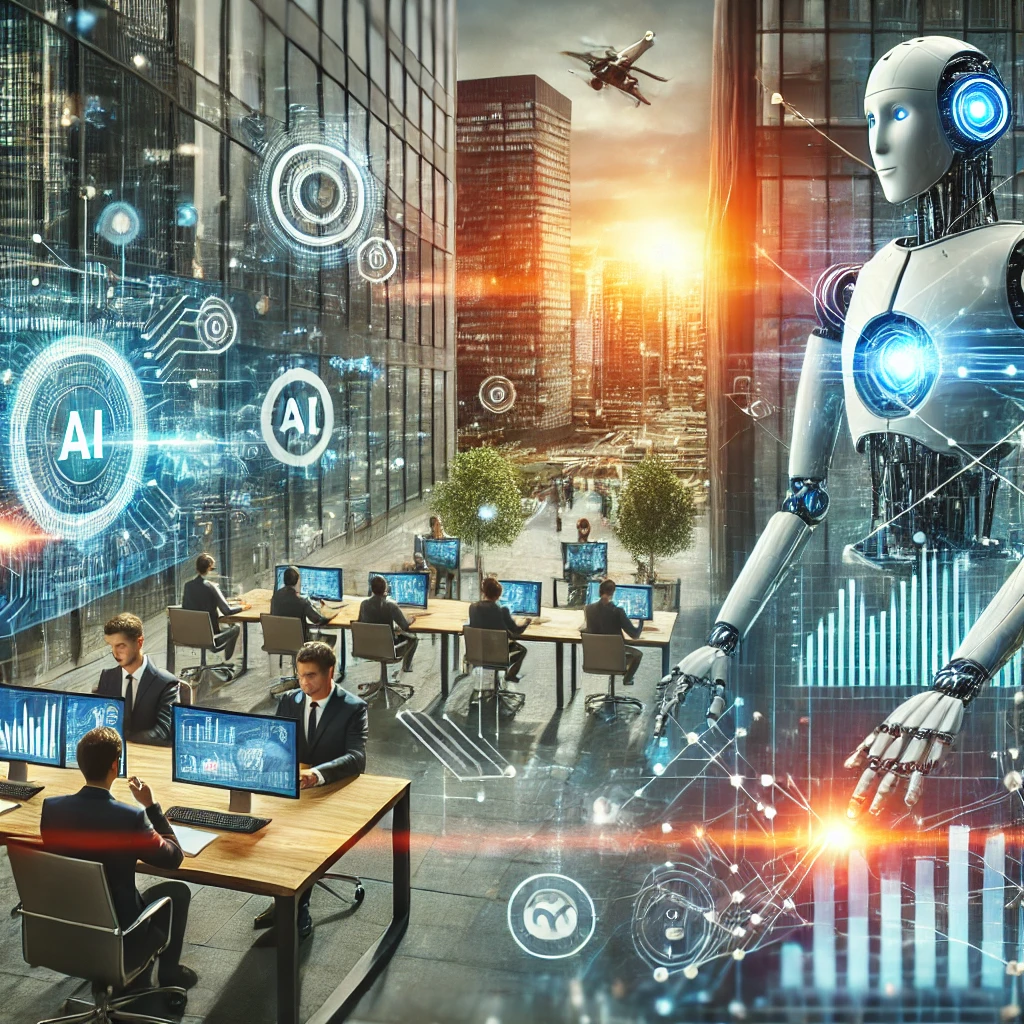
The Transformative Power of AI in Business
Artificial Intelligence (AI) has evolved from a mere buzzword to a fundamental force reshaping the business landscape. Its impact spans across various critical areas, revolutionizing operations and enhancing customer interactions. In this comprehensive exploration, we delve into the myriad ways AI benefits businesses, drawing on detailed statistics and expert insights to paint a thorough picture of its transformative power.
Introduction
In today’s fast-paced business environment, the adoption of AI is no longer optional; it’s a strategic imperative. From automating mundane tasks to providing deep insights into customer behavior, AI is revolutionizing how businesses operate and compete. This article will explore the extensive benefits of AI, backed by data and expert opinions, to understand how this technology is driving unprecedented efficiency and growth.
Benefits of AI for Business
Increased Efficiency
One of the most significant advantages of AI in business is its ability to enhance efficiency. According to the McKinsey Global AI Survey 2021, approximately 44% of companies have reported cost reductions directly linked to improved efficiency due to AI implementation. AI technologies streamline various processes, from inventory management to customer service, reducing the time and effort required for these tasks.
Process Automation
AI-driven automation plays a crucial role in boosting efficiency. For instance, robotic process automation (RPA) can handle repetitive tasks such as data entry, invoice processing, and customer support ticketing. This not only speeds up operations but also minimizes human error, leading to more consistent and reliable outcomes.
Predictive Maintenance
In sectors like manufacturing, AI-powered predictive maintenance helps in monitoring equipment and predicting failures before they occur. This proactive approach reduces downtime, maintains productivity, and extends the lifespan of machinery. Businesses can schedule maintenance activities during non-peak hours, ensuring continuous operation and significant cost savings.
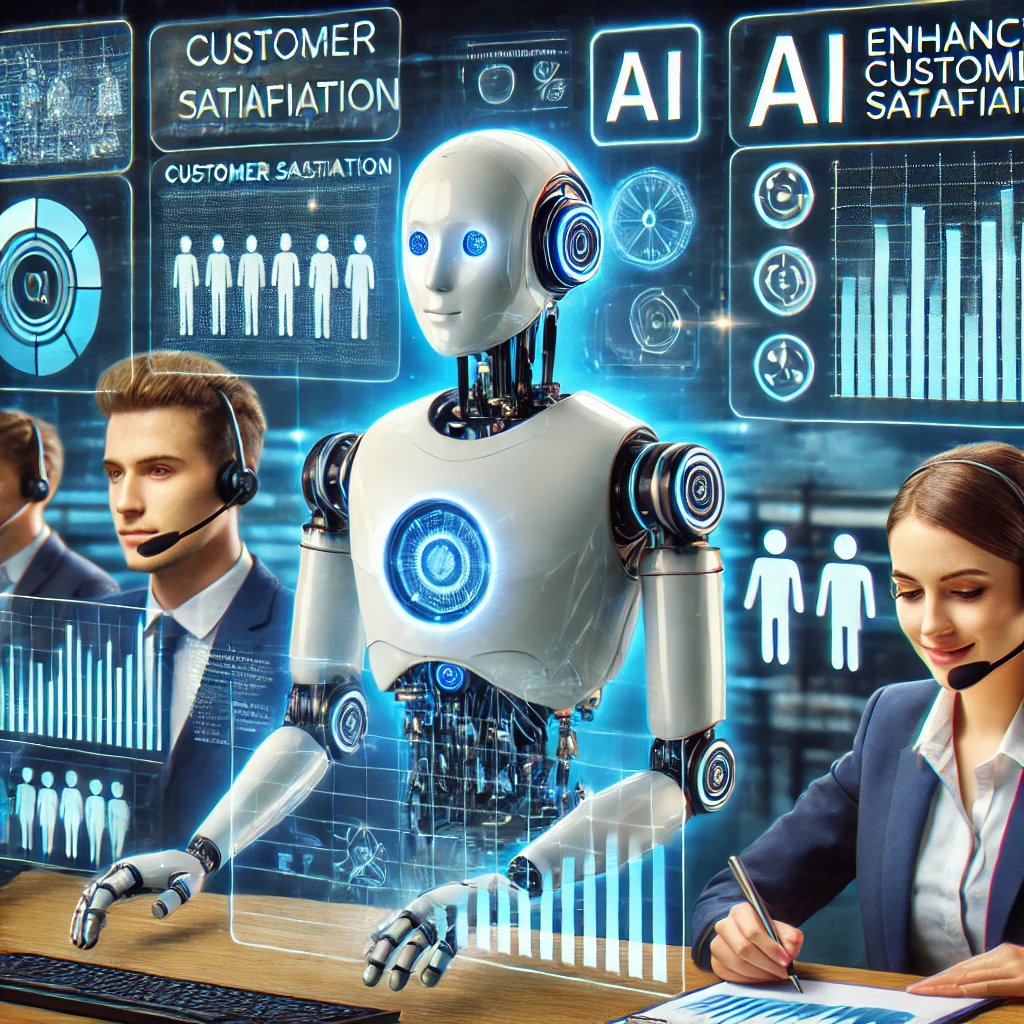
Enhanced Customer Satisfaction
Integrating AI into customer service systems has led to notable improvements in customer satisfaction. Salesforce Research’s “State of Service” 2020 report highlights that businesses utilizing AI for customer interactions have seen satisfaction increases ranging from 10% to 30%. This improvement is attributed to AI’s ability to provide quick, accurate, and personalized responses 24/7.
AI-Powered Chatbots
AI-powered chatbots are at the forefront of this transformation. These virtual assistants handle a vast array of customer inquiries, offering instant support and resolving issues efficiently. They can engage customers in natural language, providing a seamless experience that often rivals human interaction.
Personalized Customer Experience
AI enables businesses to deliver highly personalized experiences by analyzing customer data and predicting preferences. For example, AI can tailor marketing messages, product recommendations, and customer service interactions to individual needs, enhancing overall satisfaction and loyalty.
Market Growth and Job Creation
The AI market is on a trajectory for substantial growth, with projections estimating its value at $500 billion by 2024, according to Statista’s “Artificial Intelligence – worldwide” 2020 report. This expansion is not only transforming industries but also generating numerous job opportunities, particularly in AI development, data analysis, and user support.
Expanding Job Roles
While there is concern about AI displacing certain jobs, it is also creating new roles that require advanced skills. Positions such as AI specialists, data scientists, and machine learning engineers are in high demand. Additionally, the integration of AI in business processes necessitates roles focused on managing and interpreting AI-generated insights.
Upskilling and Reskilling
To leverage AI effectively, businesses are investing in upskilling and reskilling their workforce. Training programs are being developed to equip employees with the necessary skills to work alongside AI technologies. This not only enhances their career prospects but also ensures that companies can fully harness AI’s potential.
Automation of Manual Tasks
AI and automation technologies are anticipated to automate between 30% to 50% of manual tasks in certain sectors by 2025, according to the McKinsey Global Institute’s report “A Future that Works” 2017. Industries such as manufacturing, logistics, and data management are leading this trend.
Manufacturing and Logistics
In manufacturing, AI-driven automation is revolutionizing production lines. Robots and automated systems perform tasks such as assembly, packaging, and quality control with high precision and speed. In logistics, AI optimizes supply chain operations, from inventory management to route planning, ensuring timely and cost-effective delivery of goods.
Data Management
In data-intensive industries, AI automates data processing tasks, such as data cleansing, integration, and analysis. This allows businesses to handle large volumes of data more efficiently, extracting valuable insights that drive strategic decision-making.
Operational Cost Savings
Businesses have observed significant cost savings following AI implementation. Deloitte’s “State of AI in the Enterprise” 3rd Edition 2020 report indicates that operational cost reductions range from 10% to 40%. These savings stem from automating routine tasks, improving operational efficiency, and better resource allocation. Notably, 62% of respondents reported cost reductions due to AI adoption.
Resource Optimization
AI helps in optimizing resource utilization by analyzing consumption patterns and identifying inefficiencies. For example, in energy management, AI can predict demand and optimize energy distribution, reducing wastage and lowering costs. Similarly, in human resources, AI-driven workforce management systems ensure optimal staff allocation based on workload and business needs.
Enhanced Decision-Making
AI enhances decision-making by providing data-driven insights. Advanced analytics and machine learning models analyze vast amounts of data to identify trends and patterns that inform strategic decisions. This reduces the risk of human error and biases, leading to more accurate and effective business strategies.
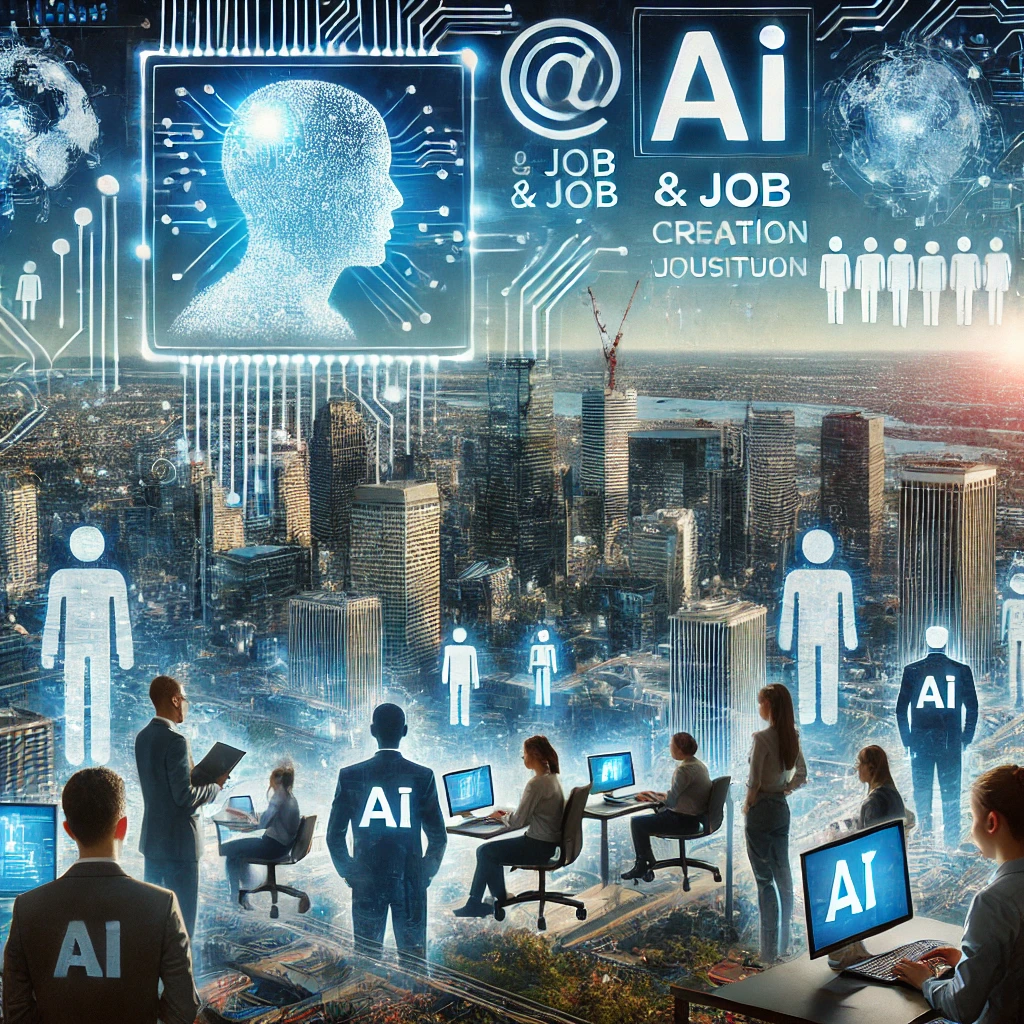
Comprehensive Sector Analysis
Healthcare
AI in Diagnostics and Treatment
AI is revolutionizing healthcare by enhancing diagnostic accuracy and personalizing treatment plans. Machine learning algorithms analyze medical images, electronic health records, and genetic data to detect diseases at early stages and recommend tailored treatment options. This not only improves patient outcomes but also reduces healthcare costs.
Virtual Health Assistants
AI-powered virtual health assistants provide patients with real-time health information, symptom analysis, and medication reminders. These tools enhance patient engagement and adherence to treatment plans, ultimately improving health outcomes.
Finance
Fraud Detection and Prevention
In the financial sector, AI is crucial for detecting and preventing fraud. AI systems analyze transaction data in real-time, identifying unusual patterns and flagging potential fraudulent activities. This proactive approach minimizes financial losses and enhances security.
Investment Strategies
AI is transforming investment strategies by analyzing market data and predicting trends. Algorithmic trading systems use AI to execute trades at optimal times, maximizing returns and minimizing risks. Financial advisors also use AI to offer personalized investment recommendations based on individual risk profiles and financial goals.
Retail
Customer Insights and Personalization
In retail, AI analyzes customer behavior data to provide deep insights into purchasing patterns and preferences. Retailers use this information to personalize marketing campaigns, optimize product assortments, and enhance customer experiences.
Inventory Management
AI-driven inventory management systems predict demand, optimize stock levels, and reduce wastage. By ensuring the right products are available at the right time, these systems improve customer satisfaction and reduce operational costs.
Manufacturing
Smart Manufacturing
AI is at the heart of smart manufacturing, where connected devices and systems communicate in real-time to optimize production processes. AI algorithms analyze data from sensors embedded in machinery, predicting maintenance needs and preventing breakdowns. This increases productivity and reduces downtime.
Supply Chain Optimization
AI optimizes supply chain operations by forecasting demand, managing inventory, and planning logistics. This ensures timely delivery of raw materials and finished products, reducing costs and enhancing efficiency.
Automotive
Autonomous Vehicles
AI is driving the development of autonomous vehicles, which use machine learning algorithms to navigate and make driving decisions. These vehicles promise to reduce accidents, improve traffic flow, and provide greater mobility for people with disabilities.
Predictive Maintenance
In the automotive industry, AI predicts maintenance needs by analyzing vehicle data. This proactive approach reduces breakdowns, extends vehicle life, and improves customer satisfaction.
Conclusion
As we have explored, AI is not just shaping the future but actively transforming the present across various sectors. From healthcare to automotive, AI’s influence is expanding rapidly, driving efficiency, innovation, and growth. With a projected CAGR of 37.3% through 2030, AI’s impact will only grow, offering immense potential for businesses to enhance their operations and customer interactions.
Businesses increasingly integrate AI, with 56% already utilizing it in some capacity. The job market will see shifts, with roles being displaced and new ones emerging. Staying informed and adaptable will be key to leveraging AI’s full potential and thriving in an AI-enhanced world.
Engaging with AI
Exploring the various benefits AI offers reveals immense potential for growth and efficiency. To fully leverage AI’s capabilities, businesses should:
- Invest in AI Technologies: Allocate resources to adopt and integrate AI solutions that align with business objectives.
- Focus on Employee Training: Provide training programs to upskill and reskill employees, ensuring they can effectively work with AI technologies.
- Collaborate with AI Experts: Partner with AI specialists to develop and implement AI strategies that drive business growth.
- Stay Informed: Keep up-to-date with the latest AI trends and advancements to remain competitive in the market.
By taking these steps, businesses can harness the transformative power of AI to drive efficiency, innovation, and customer satisfaction.
Share Your Experiences
As you explore AI for your business, consider the transformative power it holds. Share your experiences or questions about AI implementation to continue the conversation and learn from others in the field.
Sources
- Grand View Research: Detailed report on AI market growth.
- McKinsey & Company: Survey on AI adoption in businesses.
- Stanford University AI Index 2021 Annual Report: Trends in AI investment.
- World Economic Forum: Report on AI’s impact on employment.
These resources offer valuable insights into AI’s trajectory and its integration into business and society.
Next Blog: https://rankrisetech.com/understanding-your-audience

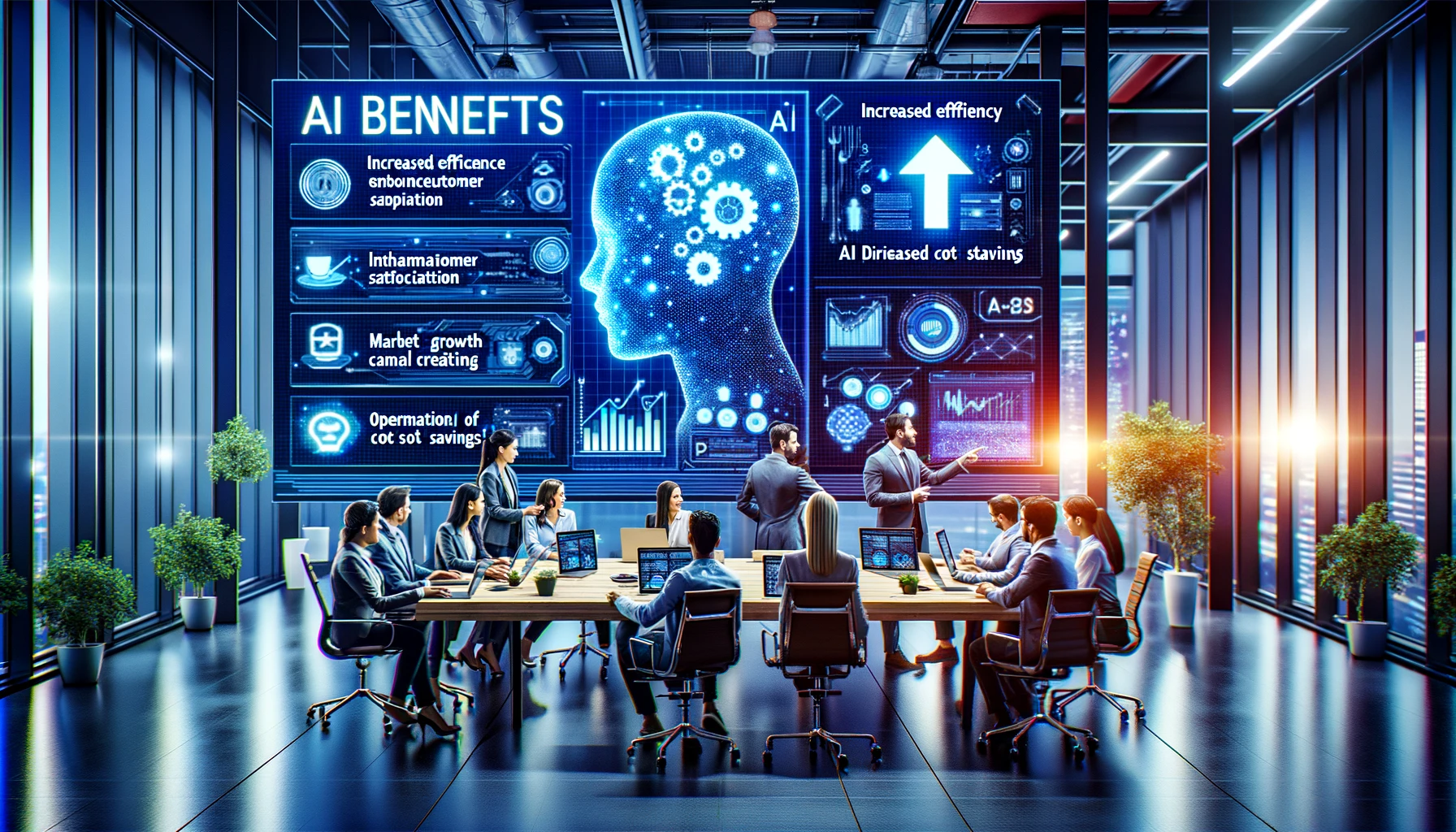
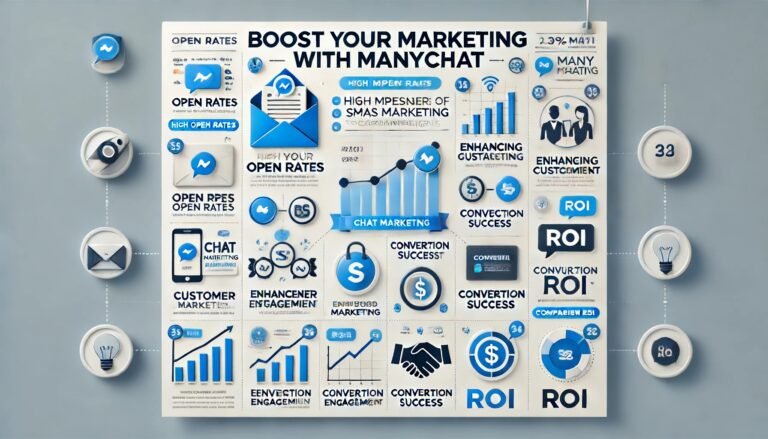
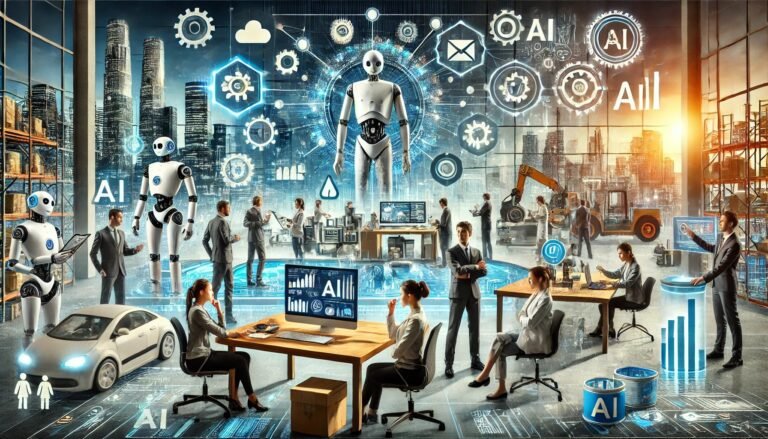

Pingback: Best Top Sectors Benefiting from AI 2024 - Rank Rise Tech